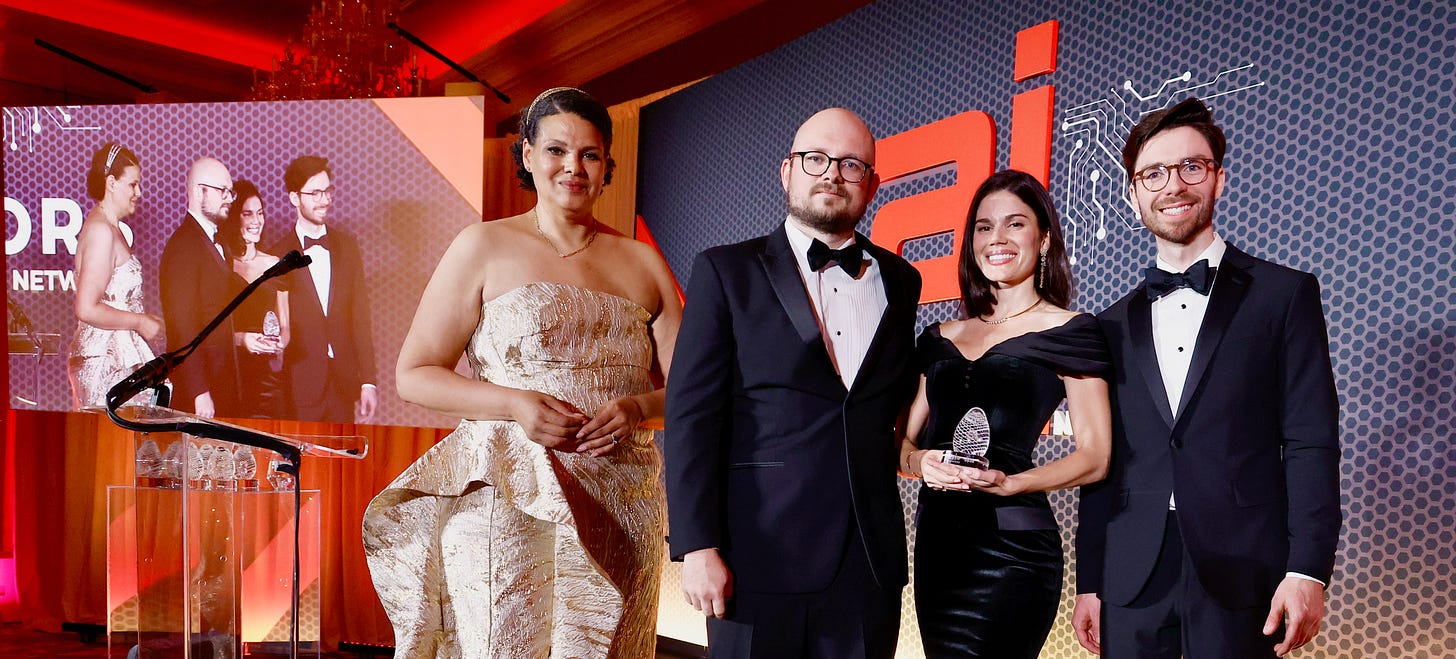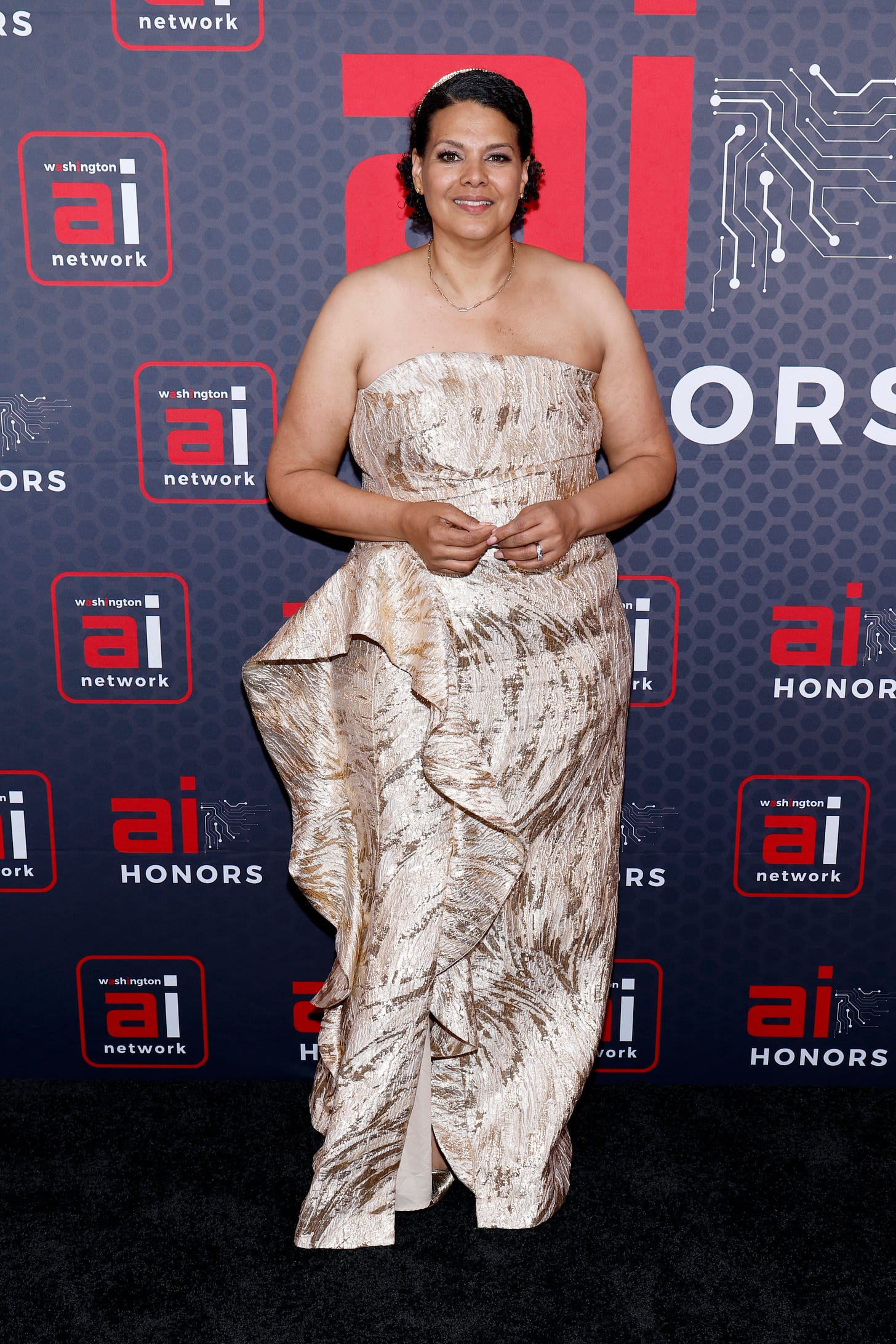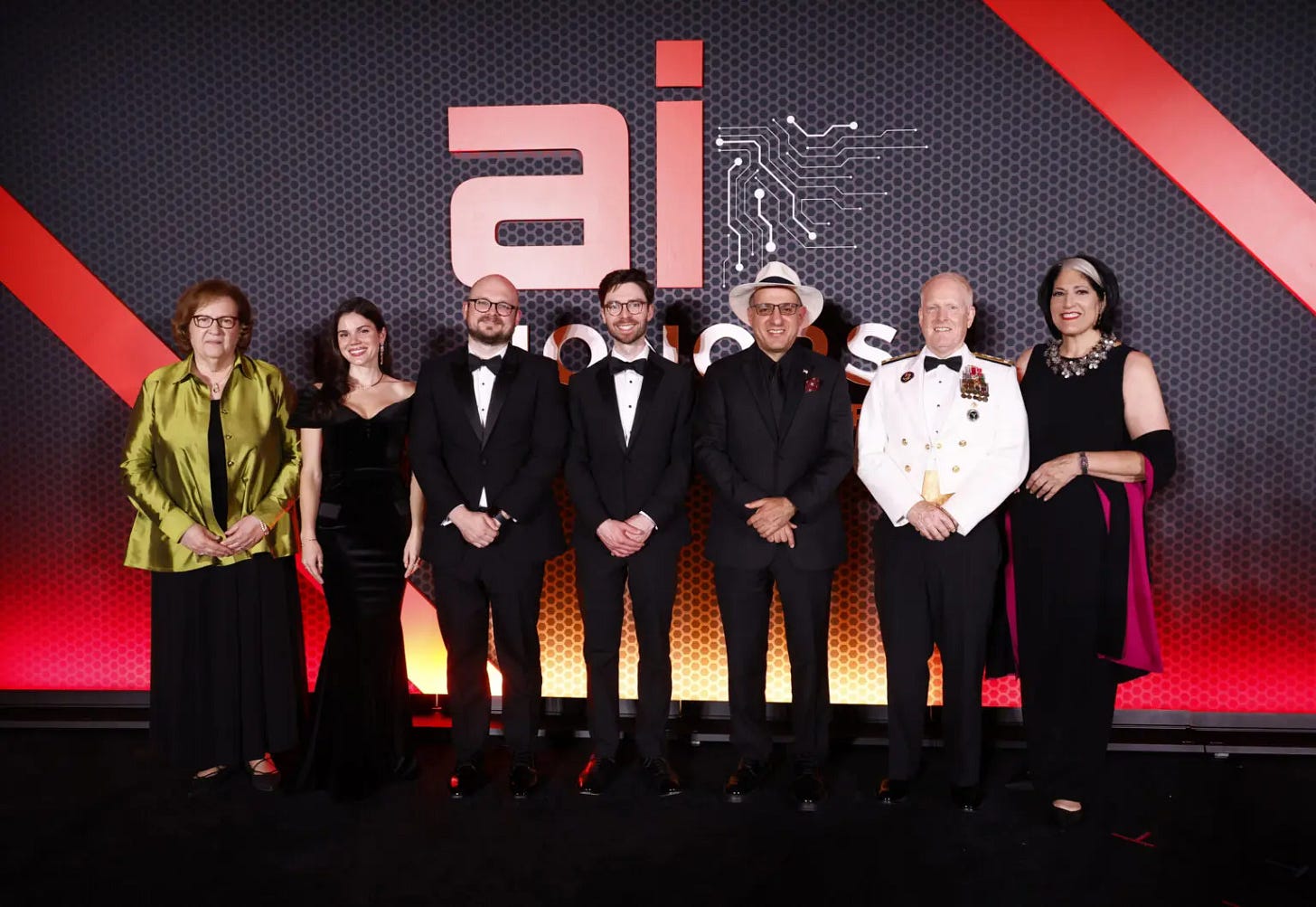Photo credit: Paul Morigi/Getty Images
At the Waldorf Astoria in downtown DC the champagne was flowing and Washington’s elite traded their policy memos for tuxedos and gowns. But this wasn’t just another political gala. This was the inaugural AI Honors and for one night artificial intelligence —not partisan gridlock— was the hottest topic in town.
Hosted by the Washington AI Network, the black-tie affair drew over 300 guests from across the capital’s influence ecosystem: policymakers, tech executives, military brass and media fixtures. CNN’s Sarah Sidner emceed the evening, which married Capitol Hill seriousness with red-carpet energy. Think Davos meets the Kennedy Center Honors with a side of Silicon Valley swagger. Yet beneath the fashion and flash, there was a clear message: America wants to lead on AI. And it’s prepared to reorganize itself to do it.
Sara Sidner
Commerce Secretary Howard Lutnick used the evening to make real news, announcing the birth of a new federal entity: the Center for AI Standards and Innovation, or CAISI. “We’re going to focus on making sure that America is the leader in AI,” Lutnick declared from the stage.
In his signature straight-shooting style, he explained the pivot. “We’re rethinking the AI Safety Institute because AI safety is sort of an opinion-based model. And the Commerce Department—we’re the standards department.” He went on: “We do standards. And we do, most successfully, cyber—the gold standard of cyber. So let’s embrace what we’re great at.”
The new center, he said, won’t regulate AI, but instead create a “voluntary” framework—a trusted hub companies can turn to for guidance. “This is a safe model. This is a model we understand. Has someone checked it out?” Lutnick posed to the crowd. “We are going to enhance the voluntary models of what great American innovation is all about.”
In other words: Washington may not build the algorithms, but it wants to shape the guardrails.
The Hon. Howard Lutnick
The gala was more than a debutante ball for a federal initiative—it was also a celebration of the people driving AI across science, policy, and ethics. Among those honored: Senator Todd Young, who’s helped steer bipartisan AI efforts in the Senate, and Congressmen Jay Obernolte and Ted Lieu, co-chairs of the House AI Task Force, who received the Bipartisan Leadership on AI Award. It was one of the evening’s not-so-subtle themes: that AI, unlike so many issues in Washington, might be a rare bipartisan opportunity.
Other honorees reflected the field’s global reach and scientific range: Vice Admiral Frank Whitworth, director of the National Geospatial-Intelligence Agency, received the Guardian of America Award. Jack Hidary, the quantum-computing entrepreneur behind SandboxAQ, was named AI Visionary. And Father Paolo Benanti—yes, a Catholic priest and the Vatican’s official AI ethics adviser—was honored for his work on aligning algorithms with human dignity.
The night wasn’t all about the spiritual and strategic, though. Booz Allen’s space-focused AI team won for innovation in orbit, and Dr. Patricia Falcone of Lawrence Livermore took home a prize for her contributions to public science.
(L-R) Honoree Patricia K. Falcone, honoree Joanna Guy, Don Polaski, honoree Zane Price, Jack Hidary, Honoree VADM Frank Whitworth and Tammy Haddad, Founder, Washington AI Network, CEO, Haddad Media
What Happens When You Mix Code and Couture? For an event about the future, it all felt surprisingly timeless. Waiters passed hors d’oeuvres under soft lighting, clutches were tucked under arms, laughter ricocheted through the ballroom. If you didn’t know better, you might think this was a White House Correspondents’ Dinner after-party. But instead of gossiping about campaigns or Cabinet drama, guests were murmuring about model architecture, standards protocols, and whether Washington could actually outmaneuver Beijing on AI.
The Washington AI Network—just under a year old—has quickly carved out a niche as the city’s premiere convener on all things AI. Led by media veteran Tammy Haddad, the group is betting big that AI will define the next decade of governance and that the capital’s power brokers want a front-row seat. If Thursday night was any indication, that bet is paying off.
(L-R) Honoree VADM Frank Whitworth, Tammy Haddad, Teresa Carlson and Jack Hidary
A Glimpse of What’s to Come: While the AI Honors were designed to spotlight innovation and bipartisanship, there were moments that hinted at the deeper anxieties simmering beneath the optimism. “90% of the wafers are made in Taiwan,” Lutnick reminded the crowd. “I just want to remind you where Taiwan is—in case the whole map thing, you haven’t really seen it since the eighth or ninth grade.” Translation: The AI race isn’t just about code—it’s about chips, supply chains, geopolitics and national security.
Still, the overall mood was forward-looking. From the Vatican to Silicon Valley, from the Pentagon to the podcast booth, the message was clear: this isn’t science fiction anymore. AI is here. Washington knows it. And it’s putting on its best dress to figure out what comes next.








